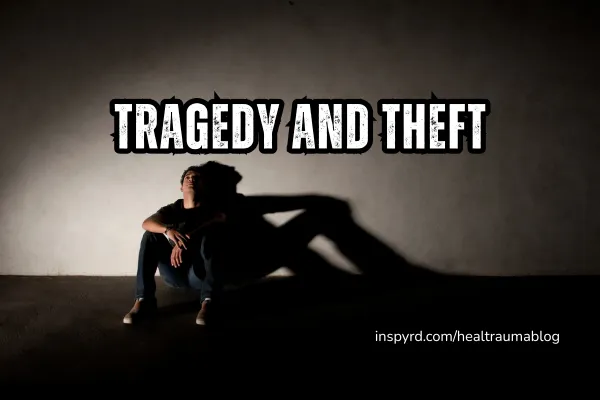
Tragedy and Theft: How Trauma Steals From Us — And How We Can Heal
Tragedy and Theft: Understanding the Hidden Cost of Trauma
I’m Allen Kanerva from INSPYRD Beyond Limits, where my mission is simple: to help people heal from trauma. Every Wednesday at 12 pm EDT, I host a live Ask Me Anything (AMA) session where I share insights on trauma recovery, neuroscience, and healing strategies—and then open the floor for your questions.
Why? Because trauma is not a life sentence. Trauma is an injury, and injuries can heal. Current research proves it. But too often, people are trapped in systems that believe trauma is difficult—if not impossible—to overcome. That belief steals lives, families, and communities of their potential.
The Seven T’s of Trauma
To make sense of trauma and the path to healing, I use a framework I call the Seven T’s of Trauma. Over the coming weeks, I’ll break them down one by one.
Today, let’s explore the first two: Tragedy and Theft.
1. Tragedy: When Life Turns Abnormal
We all experience good days and bad days. But sometimes life hits us with something outside the “normal range” of experience—what I call an abnormal bad event. That’s tragedy.
Small T Trauma
Experts like Bessel van der Kolk (The Body Keeps the Score) and Gabor Maté (When the Body Says No) describe “small T” traumas as the negative events of early life. These often occur before the age of seven—sometimes before we even develop language. Examples include neglect, emotional absence, or adverse childhood experiences.
Big T Trauma
On the other hand, “big T” traumas are episodic and catastrophic: a car accident, a cancer diagnosis, combat exposure, or the sudden loss of a loved one.
Three Ways Tragedy Strikes
From my perspective, tragedy shows up in three primary ways:
Something happens to us. Assault, accidents, or disasters leave lasting scars.
We do something to others. Moral injuries often arise here, especially in military or policing contexts.
We witness something happening to others. Studies from MIT show this can be the most traumatizing of all—feeling helpless while watching harm unfold.
2. Theft: Trauma the Thief
Trauma doesn’t just wound us—it steals from us. The first thing it takes. Sleep.
When trauma activates the sympathetic nervous system (fight, flight, or freeze), our brain floods with chemicals like adrenaline and cortisol. This cascade is great for survival in the moment but devastating for long-term health. Sleep becomes fragmented, and we miss out on what neuroscientist Matthew Walker calls “overnight therapy”—the REM cycle where memories are processed and emotions resolved.
Without deep sleep:
Memories stay “stuck” in short-term storage.
We wake overwhelmed and hyper vigilant.
Our ability to focus, connect, and thrive is stolen.
And sleep is just the beginning. Unresolved trauma eventually robs people of their careers, families, self-esteem—and far too often, their lives.
Why This Matters
If trauma is left unhealed, it cascades into mental torment and physical deterioration. But here’s the hopeful truth: healing is possible. Our bodies, minds, and spirits are designed with an innate, magnificent ability to recover.
That’s why I’m committed to sharing the Seven T’s of Trauma—so we can shift the narrative from hopelessness to healing, and from injury to triumph.